Abstract
The performance of pigeons was studied on a multiple schedule in which a three-member FR chained schedule alternated with a three-member FR tandem schedule. The chain and tandem schedules contained identical response requirements. In the chained schedule, more pausing and lower response rates occurred in the first and second components than occurred in the tandem control, in which the same exteroceptive stimulus was associated with all components. Because the reinforcement and response contingencies were identical in the chain and tandem schedules, differences in performances can be attributed to stimulus control.
Full text
PDF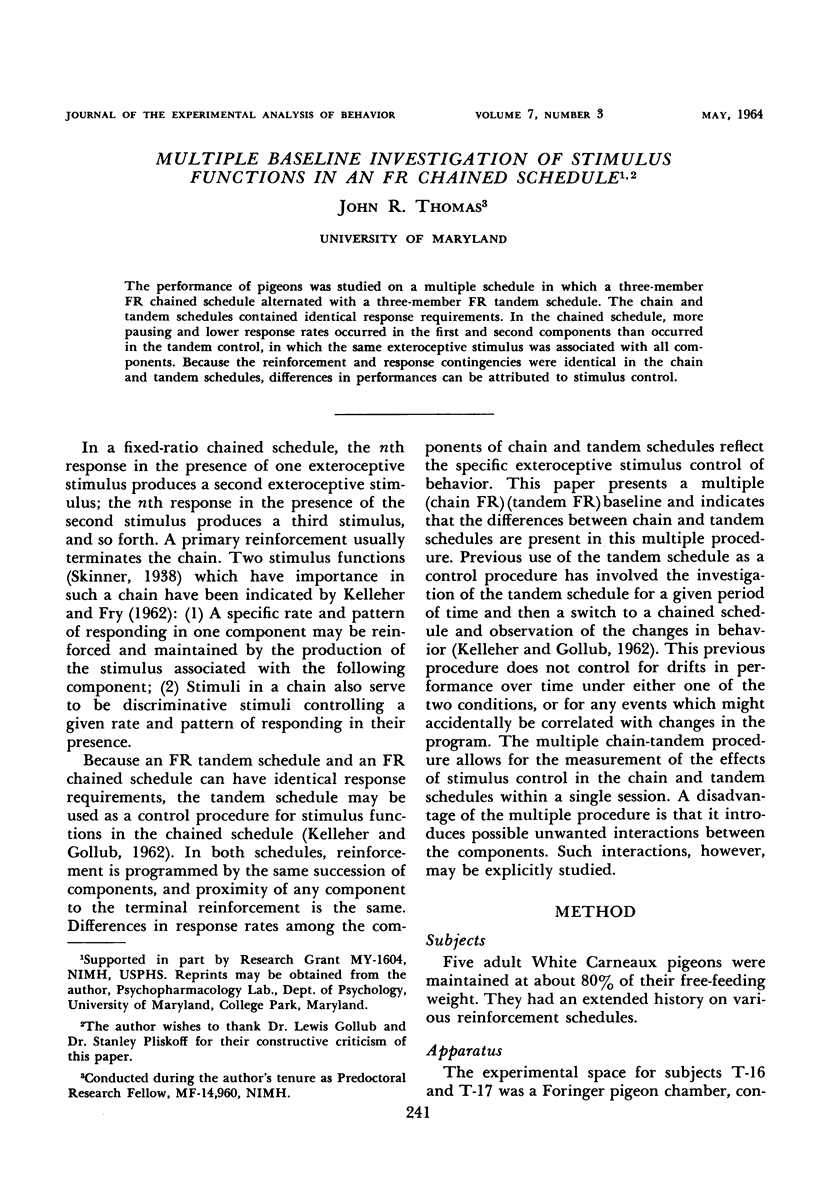
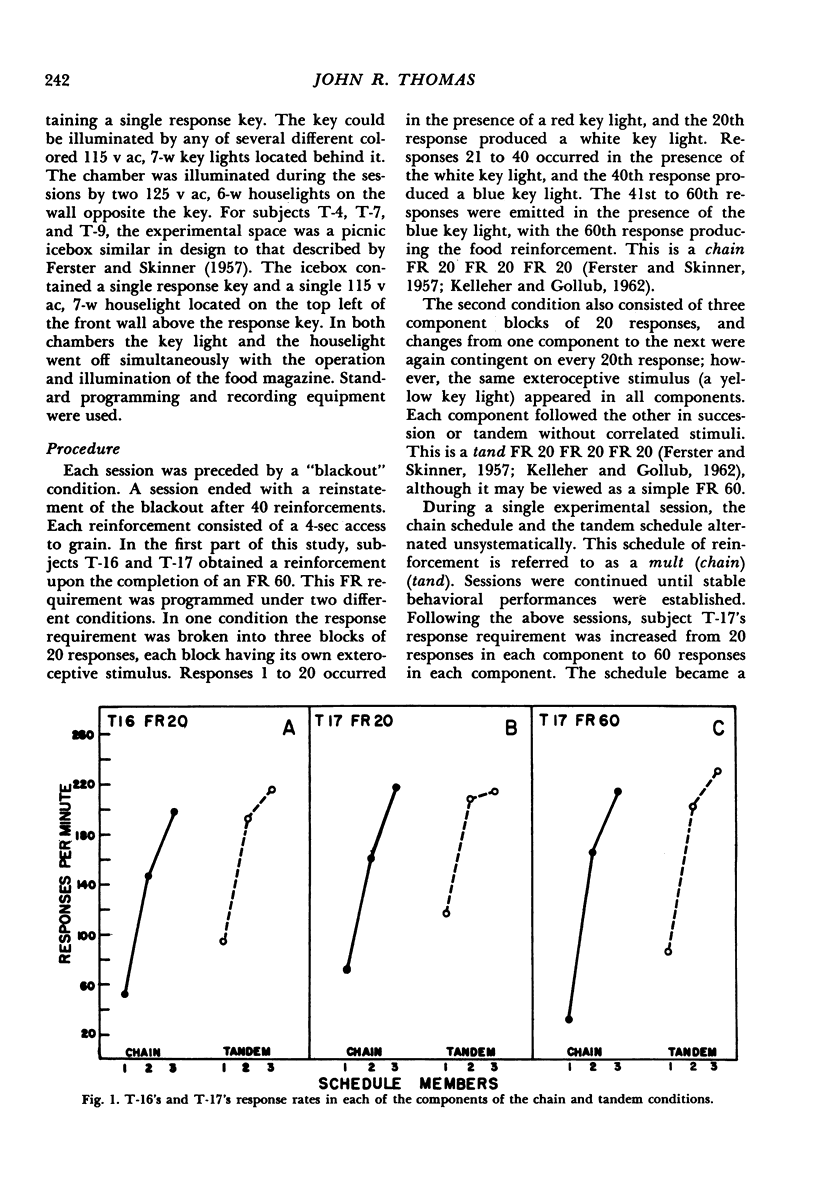
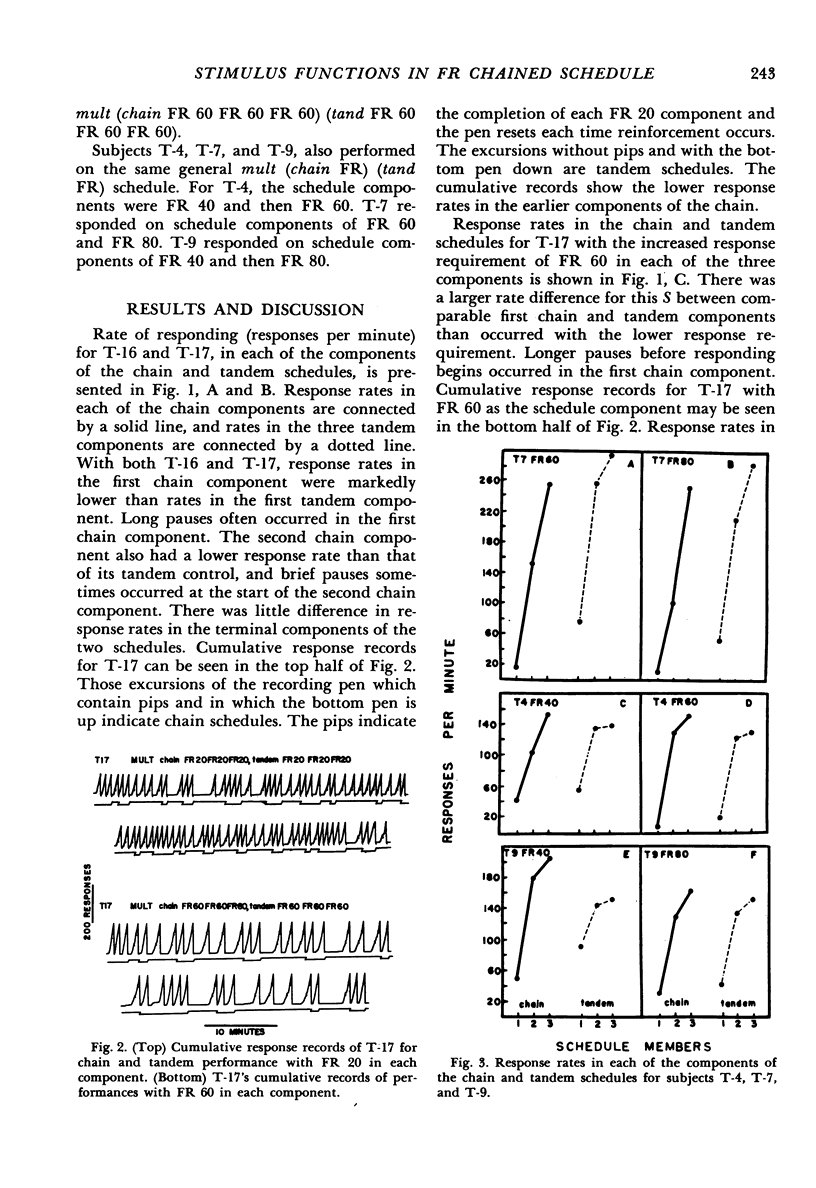
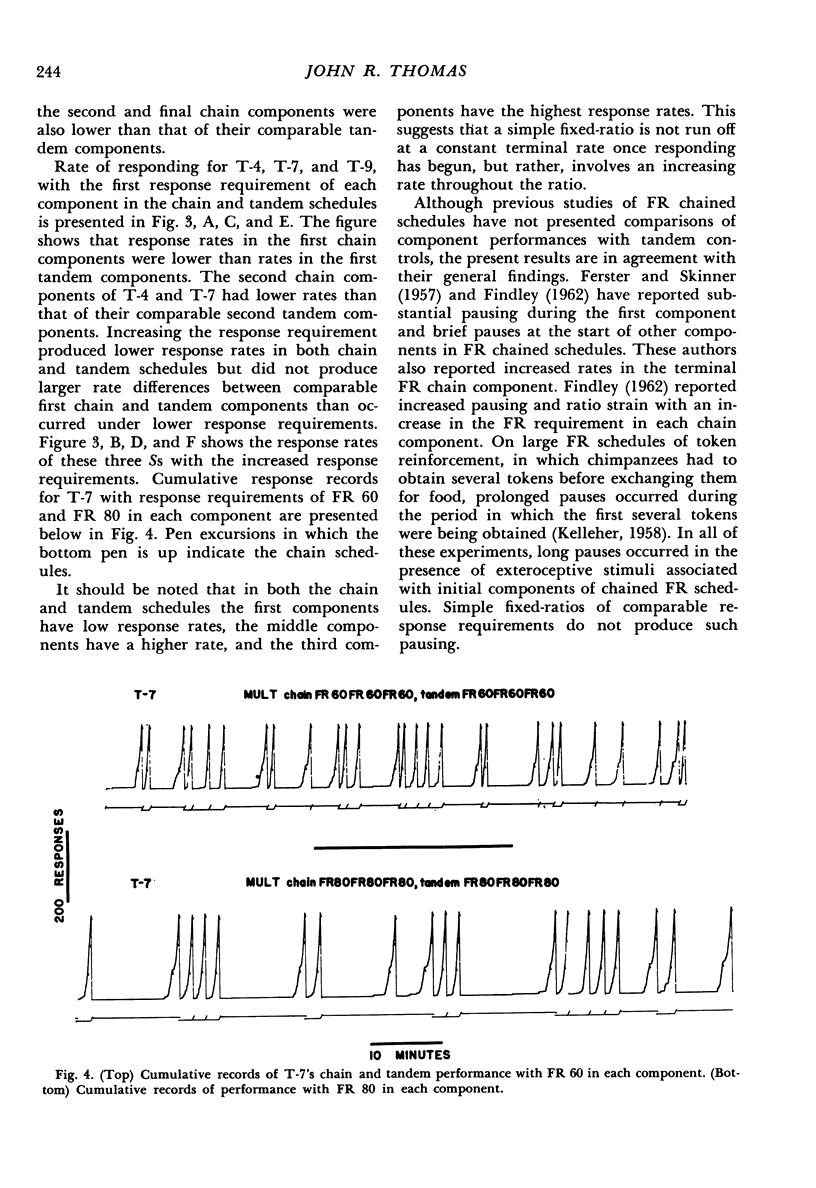
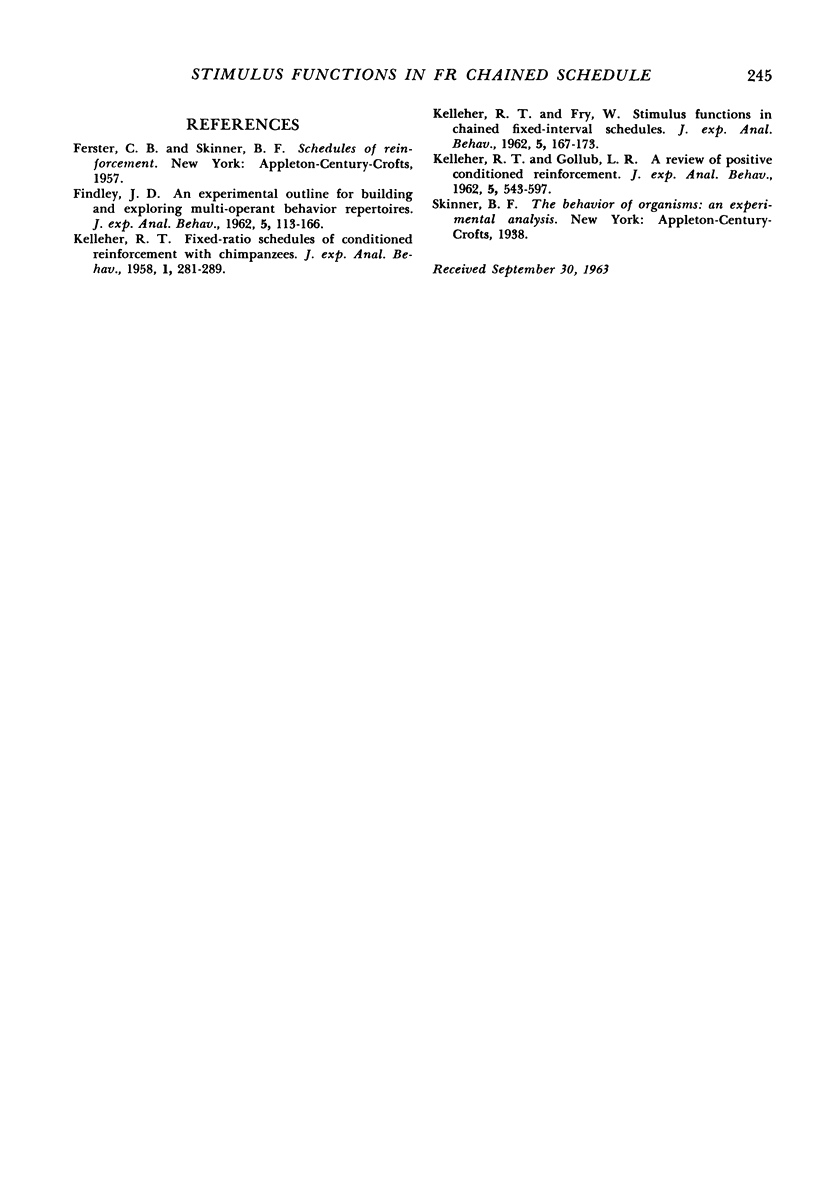
Selected References
These references are in PubMed. This may not be the complete list of references from this article.
- FINDLEY J. D. An experimental outline for building and exploring multi-operant behavior repertoires. J Exp Anal Behav. 1962 Jan;5(Suppl):113–166. doi: 10.1901/jeab.1962.5-s113. [DOI] [PMC free article] [PubMed] [Google Scholar]
- KELLEHER R. T., FRY W. T. Stimulus functions in chained fixed-interval schedules. J Exp Anal Behav. 1962 Apr;5:167–173. doi: 10.1901/jeab.1962.5-167. [DOI] [PMC free article] [PubMed] [Google Scholar]
- KELLEHER R. T., GOLLUB L. R. A review of positive conditioned reinforcement. J Exp Anal Behav. 1962 Oct;5:543–597. doi: 10.1901/jeab.1962.5-s543. [DOI] [PMC free article] [PubMed] [Google Scholar]
- Kelleher R. T. Fixed-ratio schedules of conditioned reinforcement with chimpanzees. J Exp Anal Behav. 1958 Aug;1(3):281–289. doi: 10.1901/jeab.1958.1-281. [DOI] [PMC free article] [PubMed] [Google Scholar]


